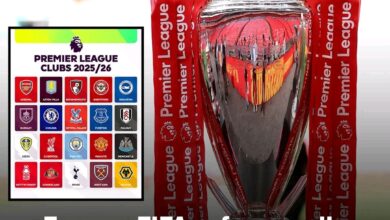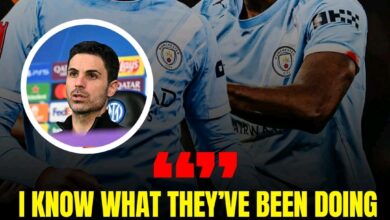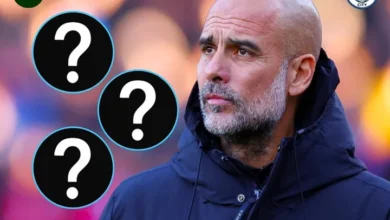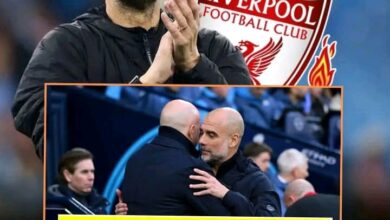Liverpool legend confirmed his return ti the club to take over from Arne Slot

The storm clouds are beginning to gather above Anfield, and Arne Slot is right in the middle of it. The new Liverpool manager, once welcomed with open arms as the man to lead the post-Klopp era, is now facing his first real test. Four straight Premier League defeats have left the club’s supporters restless, the players uncertain, and the coach visibly frustrated. And while there are many reasons behind Liverpool’s inconsistent start to the season, one problem stands above all others — set pieces.
Liverpool, a team that once prided itself on precision and organization, has suddenly become fragile and disorganized when defending corners, free-kicks, and throw-ins. It is a weakness that has cost them crucial points, eroded confidence, and put immense pressure on a squad that was supposed to challenge for the title. Slot himself has not shied away from admitting this flaw, calling it out publicly after the 2-1 loss to Manchester United. “I see teams in the Premier League that win games by set pieces,” he said sharply, “and we lose games by set pieces.”
His words hit like a confession — a clear recognition that something fundamental had gone wrong. And the statistics prove him right. In just eight league games, Liverpool have already conceded five goals from dead-ball situations. That is not just a dip; it is a collapse compared to last season, when the Reds had gone their first eight matches without conceding any from such scenarios. For a club that built its success on control, pressing, and defensive discipline, this new vulnerability is deeply troubling.
Slot’s side looks lost whenever the ball is whipped into their penalty area. Opponents have quickly noticed this flaw, targeting Liverpool’s weakness at corners and long throws. Each set-piece now brings anxiety among the players and the fans — a sign of how far the standards have dropped since Jürgen Klopp’s carefully structured system once made them one of Europe’s most feared units.
But in the middle of all this, one name has suddenly returned to the conversation — a man who was part of Liverpool’s golden years under Klopp, someone whose influence was once laughed at, then later celebrated. Thomas Gronnemark, the Danish throw-in coach who joined Liverpool in 2018, has hinted he is ready to return to Anfield. And his timing could not be more perfect.
Gronnemark’s story at Liverpool was unlike any other. When Klopp first brought him in after reading about his methods in *Bild*, many mocked the decision. A throw-in coach? It sounded strange, even unnecessary. But within months, people began to see the difference. Under Gronnemark’s guidance, Liverpool mastered the art of keeping possession from throw-ins — turning what used to be a simple restart into a tactical weapon. His coaching helped transform Trent Alexander-Arnold and Andy Robertson into lethal wide players, comfortable in tight spaces and capable of launching attacks straight from the sidelines.
It was during Gronnemark’s time that Liverpool reached their peak. Between 2018 and 2023, the Reds won every major trophy available — the Champions League, the Premier League, the Club World Cup, the FA Cup, the Carabao Cup, and even the UEFA Super Cup. Those years are now remembered as Klopp’s masterpiece era, but behind the scenes were specialists like Gronnemark who refined every little detail that made Liverpool so complete.
Now, as Arne Slot’s team struggles to defend and control set-piece moments, the idea of bringing back Gronnemark feels more than nostalgic — it feels necessary. The former coach recently responded to a Liverpool fan on social media who asked if he would ever consider returning. His reply was short but powerful: “Always ready to help, mate.” Those five words instantly lit up the Liverpool community online. Supporters began debating whether his return could fix one of the biggest weaknesses currently haunting the team.
The recent 3-2 loss to Brentford perfectly highlighted Liverpool’s troubles. One of Brentford’s goals came directly from a long throw-in — the very kind of situation Gronnemark specialized in preventing. For many fans, that moment symbolized how far Liverpool had drifted from the small details that once made them great. Klopp used to call those “marginal gains” — the little improvements that, when added together, made the team nearly unbeatable. Slot’s Liverpool, however, have lost that edge.
Arne Slot, who arrived with a reputation for discipline and tactical structure from his time at Feyenoord, now faces his toughest period as Liverpool manager. He inherited a squad in transition, still adjusting to life without Klopp’s emotional and tactical leadership. Some players are learning new roles, while others are struggling to adapt to his methods. But set pieces — something that depends more on organization than on style — should never have been a weakness for a top side. That’s what makes the situation even more painful for supporters.
The truth is, modern football is decided by moments. A single corner, a single free-kick, or a single throw-in can change everything. Pep Guardiola has his own set-piece team at Manchester City; Arsenal hired Nicolas Jover for the same purpose; even mid-table clubs like Brentford and Brighton invest heavily in specialists. It’s no longer enough to rely on general coaching — the details matter more than ever. Liverpool once understood that perfectly under Klopp. But now, with Slot trying to rebuild, those small cracks have become wide gaps.
Gronnemark’s potential return would bring back more than just technical expertise. It would reconnect Liverpool with an era of belief — a time when every player trusted the process, every fan felt the team could handle any pressure, and every small moment seemed under control. His philosophy is not just about throw-ins; it’s about communication, awareness, and quick decision-making. He calls it the “fast thinking” approach — turning dead situations into live opportunities.
Slot could use that energy right now. His team often looks hesitant in transitions, especially when defending. They lack that sharpness and communication that once defined Klopp’s side. Bringing in someone like Gronnemark could help restore confidence in both defense and attack. Liverpool need to rediscover that rhythm — that sense of control that starts with small details but extends across the entire team.
Some fans believe that Slot might hesitate to bring back a figure so closely linked to Klopp’s era, fearing comparisons. But others argue that Liverpool’s DNA is built on continuity, not rivalry. Klopp himself always said that the club is bigger than any one person. If Gronnemark can help Liverpool improve, then his past should not matter. What should matter is performance, results, and progress.
It’s also important to remember how open-minded Klopp was when he hired specialists. At one point, Liverpool had experts for nutrition, psychology, recovery, and even sleep management. Each of them contributed in their own small way to the club’s success. That is why Gronnemark’s influence fit perfectly into that culture. He understood Liverpool’s identity — a mix of science, passion, and hard work. Slot, who describes himself as a perfectionist, could continue that legacy rather than reject it.
Behind the scenes, Liverpool’s backroom staff are already being reviewed after the recent poor run. Slot is expected to make changes, and it would not be surprising if he considers reintroducing certain specialist roles that were removed after Klopp’s departure. If Gronnemark’s public statement is anything to go by, the door is already open. “Always ready to help,” he said — and at this point, Liverpool could use all the help they can get.
The fans too seem ready for it. Social media has been flooded with comments asking for Gronnemark’s return. Many supporters see it as a symbolic move — not just a tactical one. For them, it would mean reconnecting with the standards of the past, with the small details that made Liverpool great. It’s a call for identity, for pride, for the values that once separated them from everyone else.
As the Premier League season moves forward, every point matters. Liverpool are still within touching distance of the top four, but their confidence has taken a heavy blow. Slot’s challenge now is to rebuild the team mentally and tactically. He needs solutions, and he needs them fast. Whether he turns to an old face like Gronnemark or not, one thing is clear — Liverpool must rediscover their discipline in set-piece situations, or risk watching their season unravel before it truly begins.
The beautiful thing about football, however, is that it always offers a second chance. For Arne Slot, that second chance might come through learning from Liverpool’s past. For Thomas Gronnemark, it might come through returning to the club he helped shape during its most glorious period. And for Liverpool fans, it might come through seeing their team rediscover the small, invisible strengths that once made them giants.
The story of Liverpool has always been one of rebirth — from Shankly to Paisley, from Rafa to Klopp. Each era built something, fell apart, and then rebuilt again. Perhaps now, under Arne Slot, another chapter is beginning. But if history has taught Liverpool anything, it’s that greatness starts with the smallest details. And maybe, just maybe, one of those details is a throw-in coach who knows exactly what it means to make a difference.
As the days go by, the conversation around Gronnemark’s potential return will likely grow louder. Fans will debate, journalists will speculate, and Liverpool’s leadership will quietly analyze. But deep down, everyone at Anfield knows one truth — the team needs solutions, not sentiment. If a specialist who helped them conquer Europe is willing to return, then perhaps it’s time to open the doors again.
Because sometimes, to move forward, a club must look back — not to dwell on the past, but to remember how it once achieved greatness. And right now, in a season full of frustration, fatigue, and fragile defending, that reminder might be exactly what Liverpool need most.















